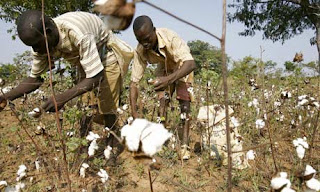A decade has passed since the proposed agenda to put developing nations at the center of international trade. Has the World Trade Organization failed to deliver on their promises? It appears so when economic and political interestes are of concern for global powers. The future of the world's poor looks grisly if genuine cooperation amongst competing nations don't happen soon.
Some notable WTO failures effecting the poor:
- Cotton: barriers created for 15 million cotton farmers across West Africa trying to trade their way out of poverty, but are forced out of business due to subsidies ($47 bn) allocated to rich-country producers
- Agricultural subsidies: overproduction due to subsidies paid to rich country farmers
- Trade agreements: unclear and ambiguous rules making it easier for rich nations to manipulate the poorest countries
- Medicine: lack of accessibility to affordable medicine (ambiguity between government protection and IP rights of pharmaceutical companies)
- Legal costs: lack of improvements made to accessibility to expensive and complex legal system (400 cases initiated)
- Natural disasters: immediate alleviation of suffering in developing nations
- Decision-making: inability to break the link between market size and political weight - trumps the voice of poor countries in trade negotiations
Should developing nations take the back seat? Most definitely not. We are all interconnected and it is imperative that we help the weak to strengthen our global community as a whole.
--Georisa Chang
SOURCE: The Guardian




